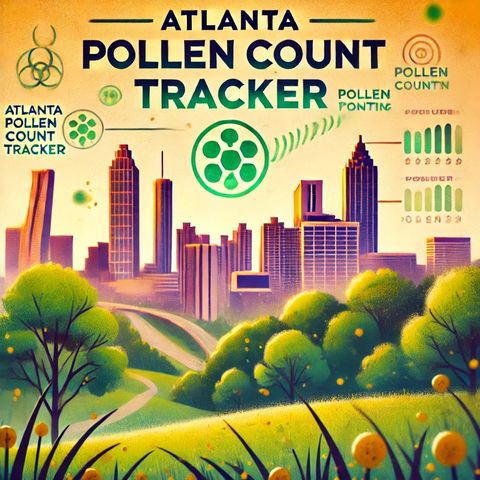Pollen Count for Atlanta, GA on 11-22-2024

Download and listen anywhere
Download your favorite episodes and enjoy them, wherever you are! Sign up or log in now to access offline listening.
Pollen Count for Atlanta, GA on 11-22-2024
This is an automatically generated transcript. Please note that complete accuracy is not guaranteed.
Description
Atlanta, Georgia, is known for its rich vegetation and beautiful parks, but this also makes the city susceptible to high pollen counts, something for which residents need to prepare, especially...
show moreFor this time of the year, Atlanta typically experiences varying pollen levels due to changing weather conditions and vegetation cycles. While spring is often associated with high pollen levels from trees like oak, birch, and pine, autumn can also bring significant pollen, primarily from ragweed and other late-blooming plants. However, by late November, pollen levels tend to decrease as colder temperatures inhibit the proliferation of pollen-producing plants.
As of today, the anticipated pollen count in Atlanta is expected to be relatively low, which is a relief for allergy sufferers. The primary contributors to any pollen in the air are likely to be ragweed and molds. Ragweed season usually peaks in September and October but may extend into November if warmer weather persists. Given the cooler conditions typical of this period, ragweed pollen levels should be on the decline, but they may still linger in low amounts.
Mold spores, on the other hand, can remain a concern during this period. Unlike other types of pollen, molds can thrive in cooler, damp conditions, which are common as autumn progresses. The current weather forecast suggests that recent rains and humidity might contribute to higher mold counts. Individuals sensitive to mold should remain cautious, particularly after any rain showers, which can temporarily elevate mold levels.
Overall, today's pollen levels in Atlanta are predicted to be low, making it a more comfortable day for those with pollen allergies. However, those with sensitivities to mold should remain vigilant and consider taking precautions, such as checking daily pollen forecasts, using air purifiers indoors, and keeping windows closed when mold counts are expected to be higher.
As always, monitoring local pollen forecasts and adjusting outdoor activities accordingly can help manage symptoms. For residents and visitors in Atlanta, keeping an eye on weather changes and understanding their impact on pollen levels is crucial for maintaining comfort and health during the fall season.
Information
| Author | QP-5 |
| Organization | William Corbin |
| Website | - |
| Tags |
Copyright 2024 - Spreaker Inc. an iHeartMedia Company

Comments